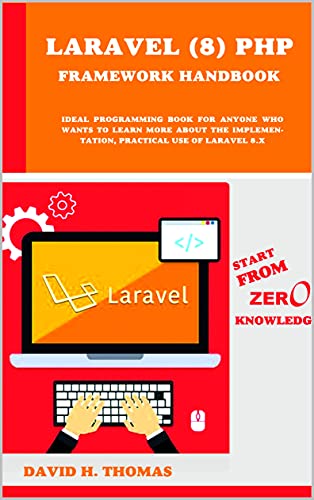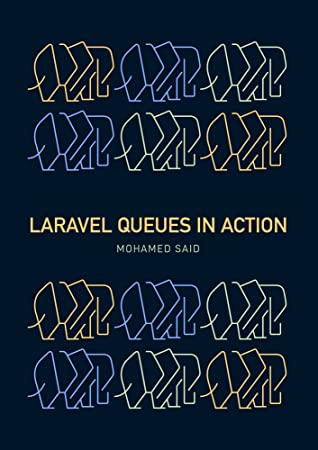Free download Biochemistry (8th edition) written by Jeremy M. Berg, John L. Tymoczko, Gregory J. Gatto, Jr. and Lubert Stryer in PDF.
For several generations of students and teachers, Biochemistry has been an invaluable resource, presenting the concepts and details of molecular structure, metabolism, and laboratory techniques in a streamlined and engaging way. Biochemistry’s success in helping students learn the subject for the first time is built on a number of hallmark features:
Clear writing and simple illustrations. The language of biochemistry is made as accessible as possible for students learning the subject for the first time.
To complement the straightforward language and organization of concepts in the text, figures illustrate a single concept at a time to help students see main points without the distraction of excess detail.
Physiological relevance. It has always been our goal to help students connect biochemistry to their own lives on a variety of scales.
Pathways and processes are presented in a physiological context so students can see how biochemistry works in the body and under different conditions, and Clinical Application sections in every chapter show students how the concepts they are studying impact human health.
The eighth edition includes a number of new Clinical Application sections based on recent discoveries in biochemistry and health.
About the Author:
JEREMY M. BERG received his B.S. and M.S. degrees in Chemistry from Stanford (where he did research with Keith Hodgson and Lubert Stryer) and his Ph.D. in Chemistry from Harvard with Richard Holm. He then completed a postdoctoral fellowship with Carl Pabo in Biophysics at Johns Hopkins University School of Medicine.
He was an Assistant Professor in the Department of Chemistry at Johns Hopkins from 1986 to 1990. He then moved to Johns Hopkins University School of Medicine as Professor and Director of the Department of Biophysics and Biophysical Chemistry, where he remained until 2003.
He then became Director of the National Institute of General Medical Sciences at the National Institutes of Health. In 2011, he moved to the University of Pittsburgh where he is now Professor of Computational and Systems Biology and Pittsburgh Foundation Chair and Director of the Institute for Personalized Medicine.
He served as President of the American Society for Biochemistry and Molecular Biology from 2011-2013. He is a Fellow of the American Association for the Advancement of Science and a member of the Institute of Medicine of the National Academy of Sciences.
He received the American Chemical Society Award in Pure Chemistry (1994) and the Eli Lilly Award for Fundamental Research in Biological Chemistry (1995), was named Maryland Outstanding Young Scientist of the Year (1995), received the Harrison Howe Award (1997), and received public service awards from the Biophysical Society, the American Society for Biochemistry and Molecular Biology, the American Chemical Society, and the American Society for Cell Biology.
He also received numerous teaching awards, including the W. Barry Wood Teaching Award (selected by medical students), the Graduate Student Teaching Award, and the Professor s Teaching Award for the Preclinical Sciences. He is coauthor, with Stephen J. Lippard, of the textbook Principles of Bioinorganic Chemistry.
John L. Tymoczko is Towsley Professor of Biology at Carleton College, where he has taught since 1976. He currently teaches Biochemistry, the Metabolic Basis
of Human Disease, Oncogenes and the Molecular Biology of Cancer, and Exercise Biochemistry and co-teaches an introductory course, Energy Flow in Biological
Systems. Professor Tymoczko received his B.A. from the University in Chicago in 1970 and his Ph.D. in Biochemistry from the University of Chicago with
Shutsung Liao at the Ben May Institute for Cancer Research in 1973. He then held a postdoctoral position with Hewson Swift of the Department of Biology at
the University of Chicago. The focus of his research has been on steroid receptors, ribonucleoprotein particles, and proteolytic processing enzymes. Gregory J. Gatto, Jr., received his A.B. degree in chemistry from Princeton University, where he worked with Martin F. Semmelhack and was awarded the Everett S. Wallis Prize in Organic Chemistry.
In 2003, he received his M.D. and Ph.D. degrees from the Johns Hopkins University School of Medicine, where he studied the structural biology of peroxisomal targeting signal recognition with Jeremy M. Berg and received the Michael A. Shanoff Young Investigator Research Award. He then completed a postdoctoral fellowship in 2006 with Christopher T. Walsh at Harvard Medical School, where he studied the biosynthesis of the macrolide immunosuppressants.
He is currently a Senior Scientific Investigator in the Heart Failure Discovery Performance Unit at GlaxoSmithKline. Lubert Stryer is Winzer Professor of Cell Biology, Emeritus, in the School of Medicine and Professor of Neurobiology, Emeritus, at Stanford University,
where he has been on the faculty since 1976. He received his M.D. from Harvard Medical School. Professor Stryer has received many awards for his research on the
interplay of light and life, including the Eli Lilly Award for Fundamental Research in Biological Chemistry, the Distinguished Inventors Award of the Intellectual
Property Owners Association, and election to the National Academy of Sciences and the American Philosophical Society. He was awarded the National Medal
of Science in 2006. The publication of his first edition of Biochemistry in 1975 transformed the teaching of biochemistry."
CONTENTS
Part I: The Molecular Design of Life
Biochemistry: An Evolving Science
Protein Composition and Structure
Exploring Proteins and Proteomes
DNA, RNA, and the Flow of Genetic Information
Exploring Genes and Genomes
Exploring Evolution and Bioinformatics
Hemoglobin: Portrait of a Protein in Action
Enzymes: Basic Concepts and Kinetics
Catalytic Strategies
Regulatory Strategies
Carbohydrates
Lipids and Cell Membranes
Membrane Channels and Pumps
Signal-Transduction Pathways
Part II: Transducing And Storing Energy
Metabolism: Basic Concepts and Design
Glycolysis and Gluconeogenesis
The Citric Acid Cycle
Oxidative Phosphorylation
The Light Reactions of Photosynthesis
The Calvin Cycle and the Pentose Phosphate Pathway
Glycogen Metabolism
Fatty Acid Metabolism
Protein Turnover and Amino Acid Catabolism
Part III: Synthesizing The Molecules of Life
The Biosynthesis of Amino Acids
Nucleotide Biosynthesis
The Biosynthesis of Membrane Lipids and Steroids
The Integration of Metabolism
DNA Replication, Repair, and Recombination
RNA Synthesis and Processing
Protein Synthesis
The Control of Gene Expression in Prokaryotes
The Control of Gene Expression in Eukaryotes
Part IV: Responding To Environmental Changes
Sensory Systems
The Immune System
Molecular Motors
Drug Development
About The Book:
Publisher : W. H. Freeman; Eighth edition (April 8, 2015)
Language : English
Hardcover : 1227 pages
Dimensions : 8.75 x 1.75 x 11 inches
File: PDF,53MB
Free Download the Book: Biochemistry Eighth Edition
PS: Share the link with your friends
If the Download link is not working, kindly drop a comment below, so we'll update the download link for you.









